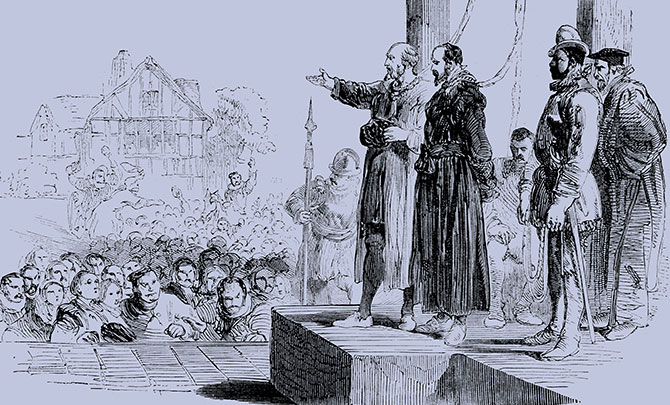Forbidden Church - Reform Magazine
What was life like in the English Christian underground? Stephen Tomkins explores the illegal Church of the Mayflower Pilgrims
Four hundred years ago this month, members of an illegal English church sailed on the Mayflower to North America, believing they were called by God to build the foundational settlement of Plymouth, New England. These believers had founded Congregational churches in England, outside the Church of England, and for that crime they faced prison and exile in the Netherlands. The movement they were part of has had a profound influence on our history and our world, and the United Reformed Church is just one of the heirs of their tradition today.
What was it like being a member of this religious underground in the reigns of Elizabeth I and James I of England? Worshippers met in fields and woods, in ships, in lofts and cellars, in pubs and in their own houses. Services could last whole days, starting at 5am. They abandoned all pre-prepared liturgy – ‘babbling in the Lord’s sight’ – and instead members led each other in prayers in their own words. ‘Every man’ could preach – a phrase they used in a generic sense but it is unlikely it included women.
Services were not necessarily the dour occasions we might associate with puritans. ‘In their prayer,’ reported one witness, ‘one speaketh and the rest do groan or sob or sigh, as if they would wring out tears.’ Another description says: ‘The chief gentleman of the place beginneth with a groaning, but yet with a loud voice crieth most religiously, “Amen”. And then the whole company of that sect follow, “Amen, amen”.’ When they worshipped upstairs in the Barrow Inn Mildenhall, Suffolk, the inn received complaints because their prayers disturbed people across the street. They also sang psalms to their own tunes.
Services were often raided and worshippers arrested. They were rarely tried, just held for indefinite periods, then often released. The separatist leader Thomas Wolsey was kept in prison for 30 years in Norfolk, but in latter years was allowed a key to let himself in and out of jail. More often though, people died after much shorter stretches in prisons, which were notoriously unhealthy. Such casualties included their minister, Richard Fitz…
Stephen Tomkins is Editor of Reform. His book, The Journey to the Mayflower: God’s outlaws and the invention of freedom (Hodder & Stoughton, 2020) is available from urcshop.co.uk for a special price of £14
___
This is an extract from an article published in the September 2020 edition of Reform












Submit a Comment